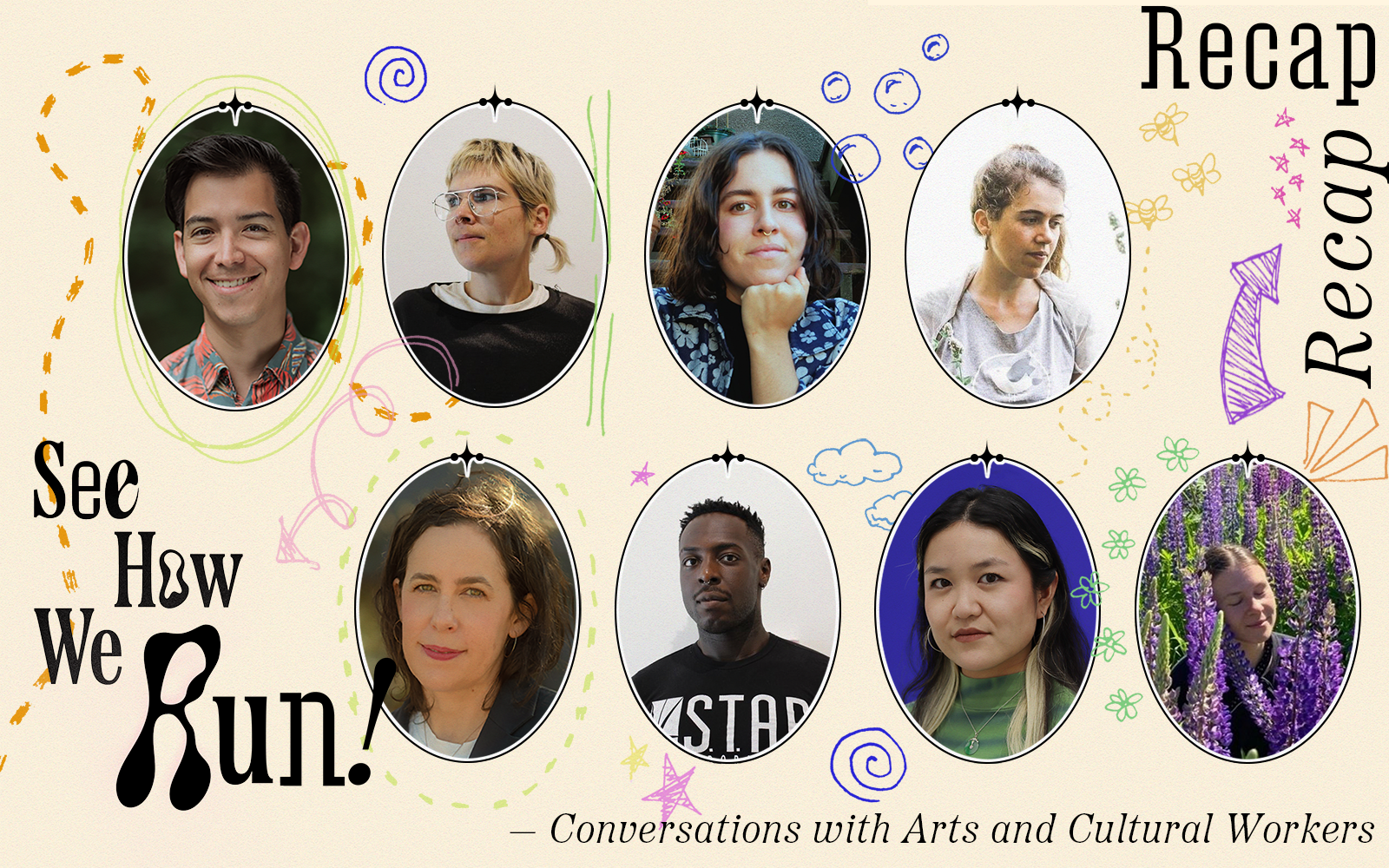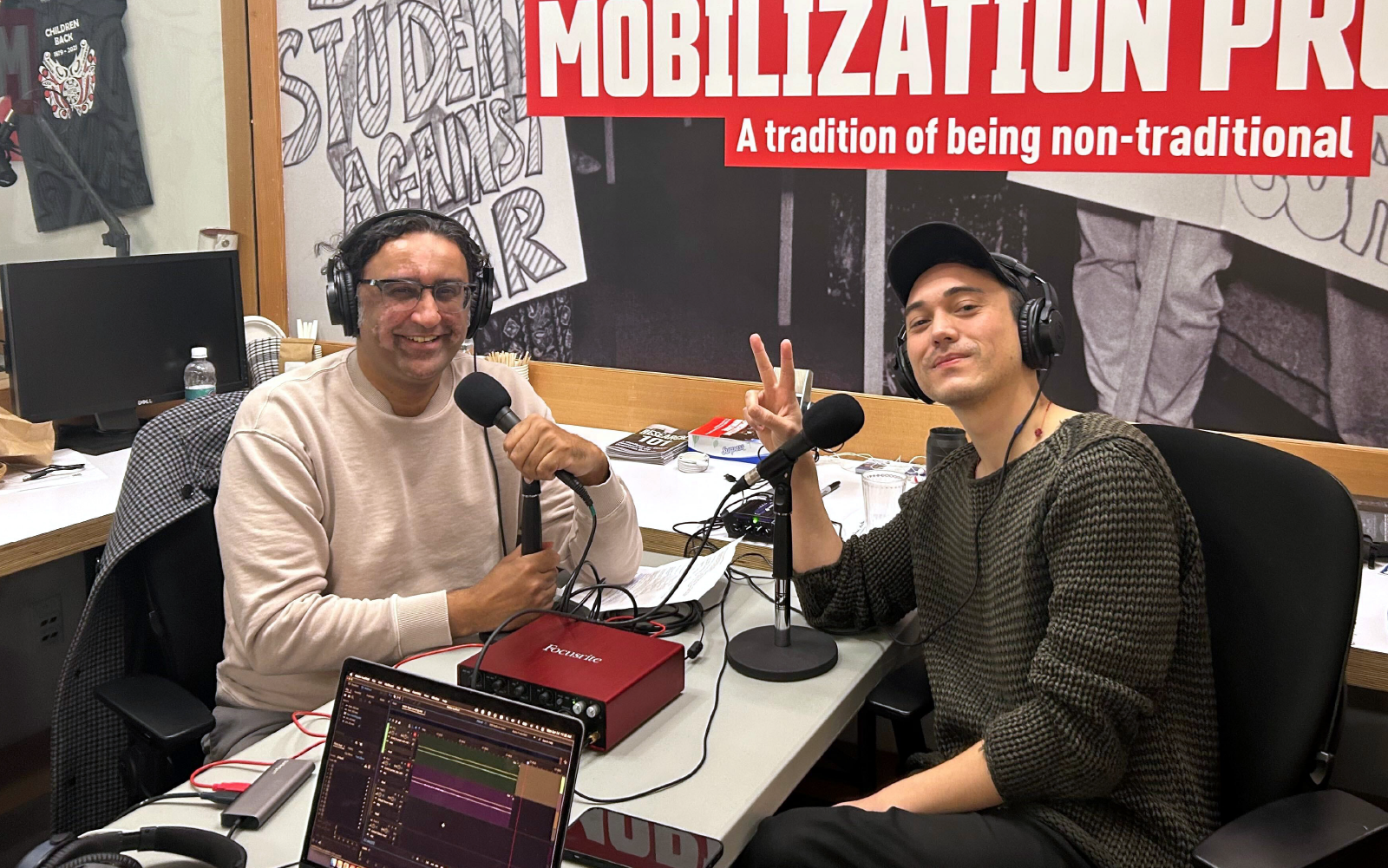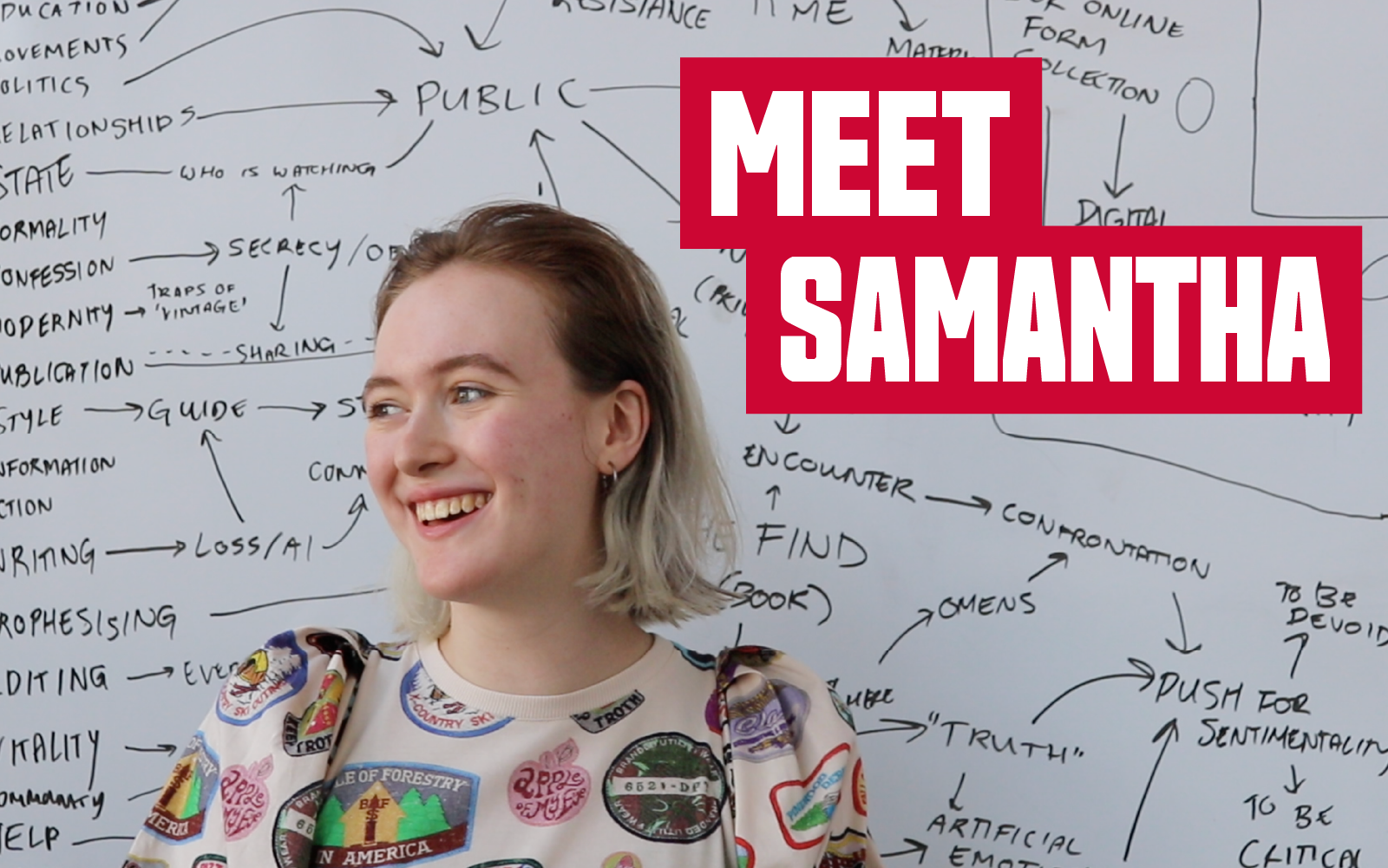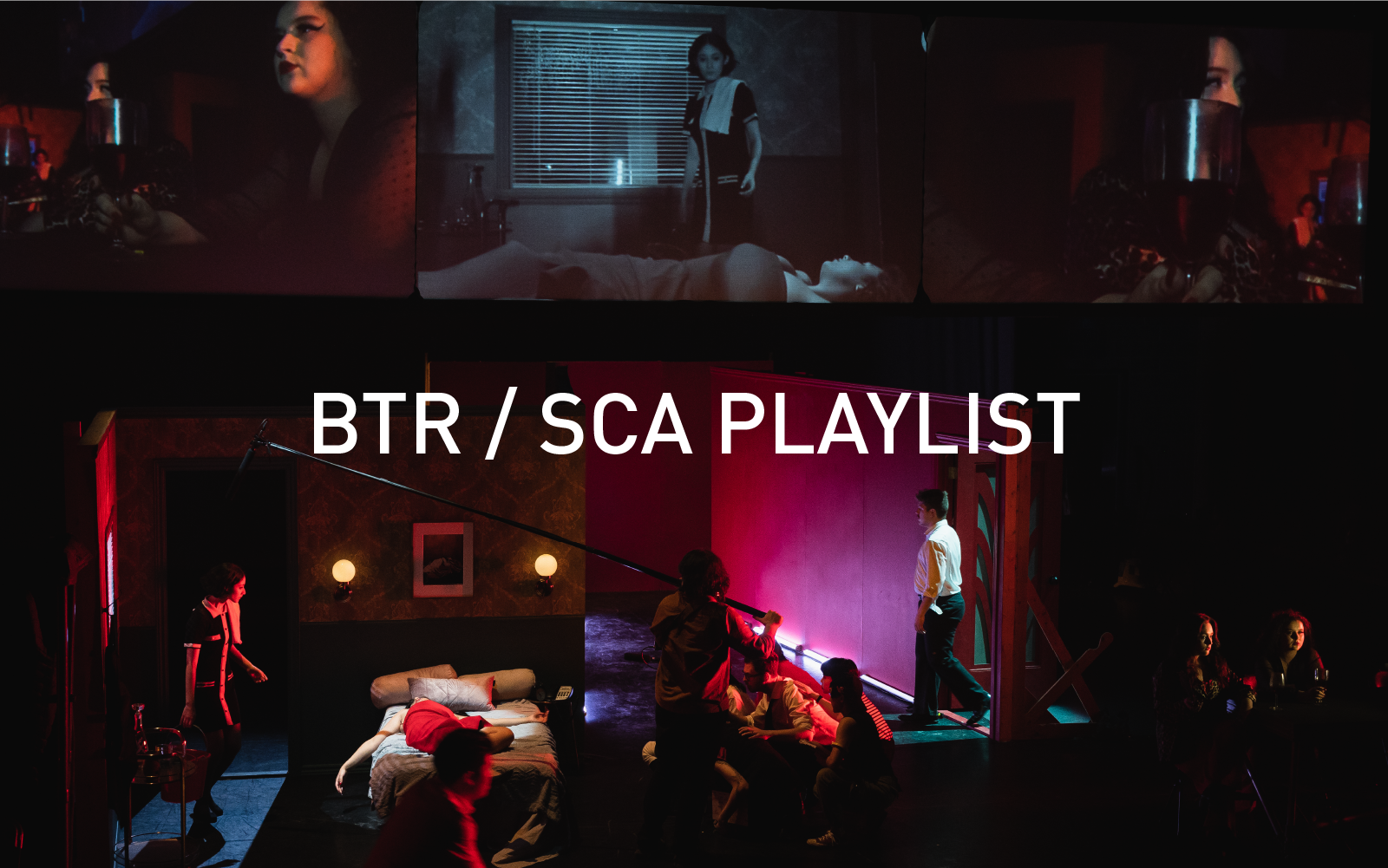Article, Social Justice
Podcasting to make labour work for women
Women, Work, More is a Below the Radar series highlighting the experiences of women across varying life-stages and social intersections.
Experiences of gendered work are multifaceted. Common concepts like the glass ceiling, or the gender wage gap, don’t even come close to scratching the surface of the varying barriers and experiences that women and gender diverse people face within their working lives. From dealing with sexualized work environments, to juggling work and home lives near and far, to retirement — these experiences not only vastly differ from men’s, but also vastly differ for feminized workers across differing social intersections such as age, race, nationality, and more.
These were some of the thoughts I had shared (though now written far more eloquently) in my first time speaking with Am Johal, the director of SFU’s Vancity Office of Community Engagement. He asked me, “what sort of perspectives would you bring to the role as a labour studies student?” As I spoke of the critiques I had with societal tendencies to oversimplify issues around women’s work to these two concepts, I was completely oblivious to how this idea would transform in the coming months — becoming alive in podcast-form nearly half a year later.
To gain a more nuanced perspective on the topic of women’s work, the Women, Work, More series documents the lived experiences of women and their relationships with work across varying life stages and social intersections.
Each episode features a snapshot into the lives of a specific group of women workers — starting with young women restaurant workers, then working mothers, then migrant women, with the series culminating on its final episode about senior women. Alongside self-told stories of women workers’ lived experiences, we also hear from professors, labour organizers and policy critics, as they share their expertise and findings — and allow us to formulate some answers to the question, “how can we make work work for women?”
Young Women Navigating Food Service
I chose to kick off this series in a space that has marked the beginning of many women’s remunerative work experiences, including myself. I invited Kaitlyn Matulewicz, a labour organizer with a background in labour law, to speak about working within the space of the food service industry.
She explores gendered power dynamics in restaurants, issues around shift scheduling and tip-out practices, and the unique barriers and harassment often experienced by young women working in front-of-house positions. Kaitlyn also discusses how women workers are pushing back against cultures of harassment, and shouts out the organizing movements working to protect workers and shift power dynamics within the industry.
“There's power operating in so many ways. And for customers, if you're a front-of-house worker, and you're relying on customers for tips. With the law and the lack of a living wage, this increases your reliance on tips. So it can be extremely difficult to navigate customer behavior that you find unacceptable or unwanted. It’s also the customer service aspect of it all, and the customer ethos, the emphasis on pleasing customers in the industry.”
— Kaitlyn Matulewicz
Woven throughout this episode, we hear stories from anonymized young women currently working in front-of-house positions, as they share their experiences of sexual harassment and resistance.
“We're kind of seen as less than our customers. We're there to make sure everything is okay and please them in a way. And with tip culture especially — as opposed to just being paid because we're doing our jobs — [we instead] have to have the customers deem us worthy of being paid or not. That leads to these entitled reactions and interactions.”
— Anonymous Young Woman Worker
Working Mothers & the Pressures of Motherhood
Moving alongside the work-life trajectories of many women, the next episode explores the deep-seated pressures and expectations that working mothers tend to bear. For this, we heard from SFU Sociology and Anthropology Professor, and author of The Juggling Mother, Amanda Watson.
Amanda speaks about the harmful idealization of the ‘juggling mother.’ She explores the ableism and racism behind this depiction, and scrutinizes the immense pressures of motherhood that are often ignored — from juggling work and home life, to breastfeeding, to acting unencumbered at work.
“We have a cultural fascination with this figure that I call the ‘juggling mother.’ We have an understanding that she's very busy, that she does the most. She's very impressive. She's a multitasker. She never drops the ball at work. She's also an expert mother on the homefront. And I just thought, wow, this is so interesting. This is sort of the new ideal. It's not the domestic goddess at home. It's not the sort of soulless, gender neutral CEO. It's actually both and it's all at the same time.”
— Amanda Watson
The episode ends with Amanda and four working mothers sharing some advice with working mothers, present and future. They speak to their visions for making work better serve parents, reshaping cultural ideas of motherhood to alleviate pressure, and placing greater value on the labour of mothers.
“It's especially important for immigrant mothers that might not have the family support around. Because for me, I don't have my family here to rely on for childcare. So, I’ve been organizing, and starting two worker cooperatives, to try to do the type of work that I want to do. But in an environment that is kinder to people, where we can look after each other, do good work. And, you know, stay sane.”
— Anonymous Working Mother
Migrant Women & Transnational Loving
This third episode of the series takes a bit of a shift, moving away from the “traditional” work experiences of women with Canadian citizen status or permanent residency — and towards temporary work experiences in Canada that are heavily racialized and citizenship-based. To explore this, transnational labour scholar and co-founder of Justicia for Migrant Workers, Evelyn Encalada Grez, speaks about migrant women and their experiences of transnational loving while working within Canada’s Seasonal Agricultural Workers Program.
Evelyn explores the pains that accompany migration, from separating families to the often temporary loves that migrant women find while working within Canada. Despite these pains, Evelyn speaks about the forms of agency that migrant women enact throughout their migration — that often revolves around reasserting their power over their bodies and sexualities.
“Women love their children, and then they fall in love in Canada. And so they are driven to migrate because of the love of their children, because of that responsibility to provide for them. But they're also driven by desire, because another love is waiting for them in the context of Canada. And throughout the years, I've heard many women say that when they come to Canada, they become princesses again, they become courted again. And so when they come to Canada, they get a chance at love again. If they were stigmatized in their home communities — here, they are not.”
— Evelyn Encalada Grez
Throughout the episode we hear quotes from migrant women whom Evelyn has encountered and interviewed as part of her research. These quotes came from Evelyn’s transcribed interviews, and shared migrant women’s feelings of transnational love, their experiences of mothering from afar, and the way these women enact strength and resistance within the oppressive terms of their migration.
“When I first entered the program, I didn’t earn as much because the [exchange rate for a] dollar was 6 to 1. But, I still felt like I was earning a lot of money, to pay for school, their clothing, and food. And the truth is that it was a positive change for my family and me. Maybe it was a big sacrifice, because you give up [spending time with] your children. But, you are left with the satisfaction that you have the means to provide for them [and to live in] the home they deserve.”
— Anonymous Woman Migrant Worker
Senior Women & Economic Inequality
As this series winds down, I wanted the final episode to explore the experiences of women as they also wind down relationships with work, and arrive in retirement — or “semi-retirement,” as was the experiences of two of the senior women I spoke to.
For this episode, Sheila Block, a senior economist from the Canadian Centre for Policy Alternatives, and Jo-Ann Hannah, a retired Director of the Pensions and Benefits at Unifor, spoke about retirement incomes with a gender and racial equity lens. They explored how pay gaps and gendered life-patterns influence income security for senior women, speak to the flaws in existing public and private pension systems, and explore solutions to make old age income more equitable.
”Pensions are based on employment earnings. And so those gender gaps that we see during active employment, those carry into retirements. So we see women with lower pensions. And another factor is that women are more likely to be employed in sectors of the economy where the employer does not provide a pension, think about the service sector, caregiving. And most important is that women are more likely to take time out of the workforce for family care, child care, elder care, and that caregiving negatively affects their pensions in retirement.”
— Jo-Ann Hannah
Throughout the episode we also hear from four senior women, as they speak about their work-life trajectories, and the resulting money struggles, worries, or “lucks” they have now — while expressing dissatisfaction with lacking assistance from government systems.
“My money situation? Zero money. I feel very, very upset sometimes because I cannot pay the lady [who] comes here cleaning the house. She buys everything for me, everything for the house, for cleaning and everything. And it’s very expensive now. And then after I ask, how come the government — they don't raise us up? They don't raise us up.”
— Senior Woman Interviewee
“As a woman, whether you're heterosexual woman who has not had any pensionable work. And as a lesbian, who has a same-sex partner, and we did not work a significant amount of time in Canada — somehow we get punished. Somehow we get punished for those choices that we made. And because of the way finances and the way retirement is viewed and, and calculated. Women for the most part, women end up being on the losing end.”
— Senior Woman Interviewee
Latest Updates
-
January 10, 2024

January 10, 2024
Our Below the Radar podcast mini-series See How We Run! looked at local arts collectives and organizations, highlighting conversations about creation, spacemaking, accessibility, and self-determination within the framework of Vancouver’s cityscape.
-
August 15, 2023

August 15, 2023
With details of our 5-year anniversary celebration event to come, let’s take a sneak peek of the upcoming season.
-
July 26, 2023

July 26, 2023
Since September 2022, we’ve held 42 events and workshops, released 33 episodes, and engaged more than 25,000 podcast listeners. During that time, working diligently behind the scenes—editing podcast audio, and supporting communications and events programming—was our interim Programs Assistant Samantha Walters, who we are pleased to announce has now moved into a continuing role in the office.
-
July 20, 2023

July 20, 2023
On June 29, 2023, 200 people turned out for the world premiere screening of Smokey Devil: Underworld Street Reporter, a feature length documentary by Nathaniel Canuel, co-hosted by SFU’s Vancity Office of Community Engagement.
-
June 29, 2023

June 29, 2023
On our latest spring season of the podcast, we had the chance to sit down with five SCA artist-scholars for some exciting discussions on their artistic practices and latest research. Whether you're looking to hear more about arts education and the local arts ecology, or just seeking some artistic inspiration, we hope you join us in diving back into these episodes.



